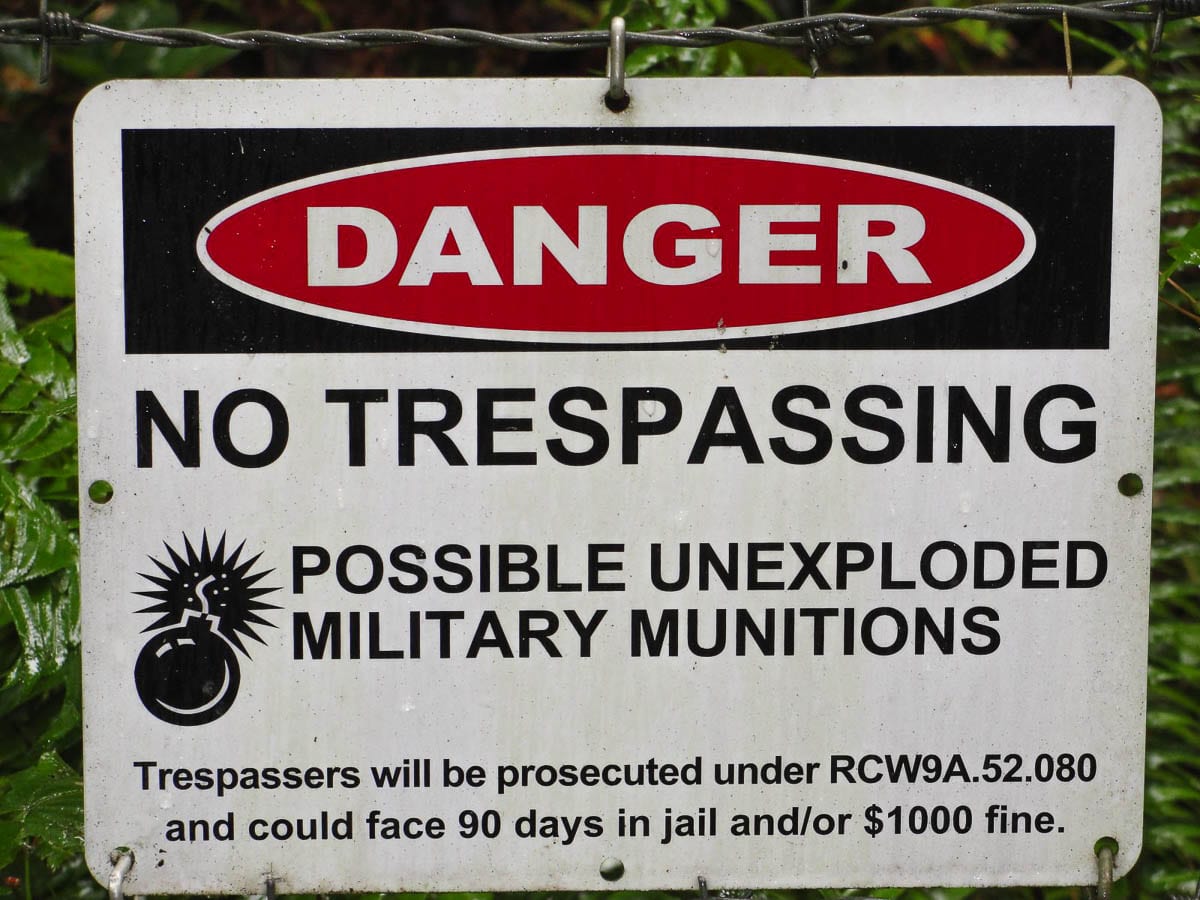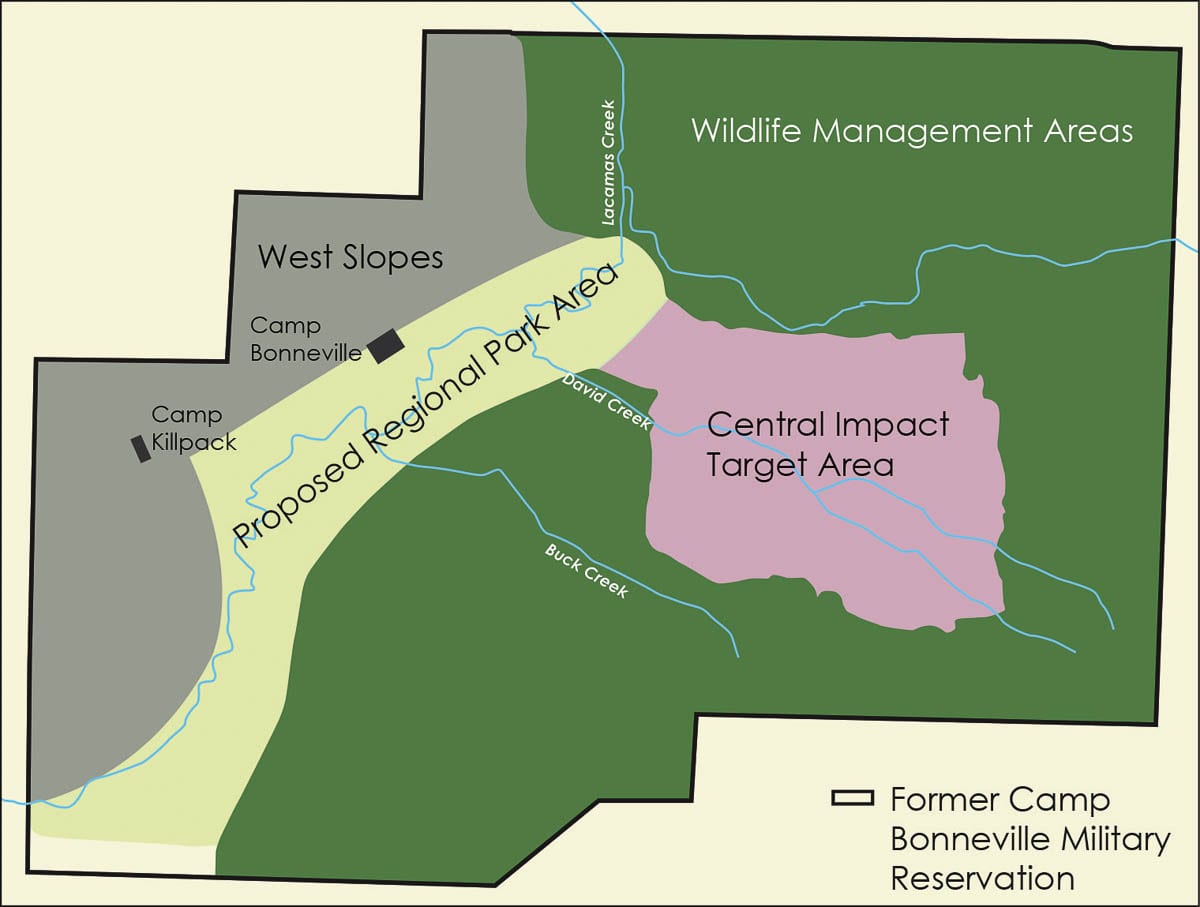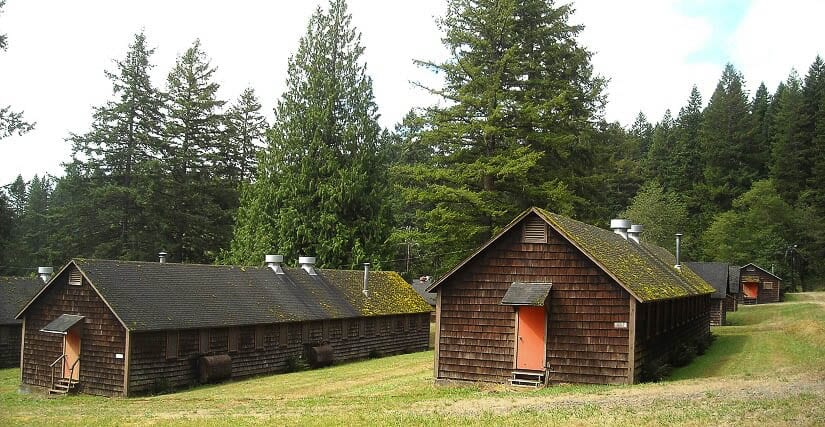Nearly 500 acres of the site will remain fenced off permanently due to the danger of unexploded munitions
CLARK COUNTY — The massive, complicated, and immensely expensive cleanup of Camp Bonneville is nearly at an end.
Between 1910 and 1995, the 3,804-acre site in east Clark County was used as a military barracks for the US Army, including live fire training which left hundreds of unexploded munitions behind, as well as lead ammunition which contaminated the groundwater.

In 2012, the county took over management of the cleanup effort, funded by the Army and overseen by the U.S. Department of Ecology.
Cleanup was initially estimated to cost just $23 million. By the time it wraps up later this year, the military estimates they will have spent over $72 million.
“Originally, the army thought we would be done with this cleanup in one to two years,” said Greg Johnson, a munitions expert with Clark County Public Works who has been involved with the project in one way or another pretty much since the beginning. “And … that was 18 years ago.”
Clark County Council received an update on the project during a work session Wednesday morning.
Munitions cleanup is considered fully completed on the site, while some work still remains to analyze the groundwater for contamination and mitigate any potential issues at future facilities on the site.
“It’s in a kind of a clay bowl,” said Johnson, “so some of the groundwater contamination is still there. It’s been thoroughly tested, and it is not a problem for human health or the environment at this time.”
Johnson said final work on remediation for the groundwater contamination should be completed by March of 2021, with final munitions cleanup in the central impact area finished by the end of this month.
Approximately 500 acres of the site’s western slope will remain off limits to the public indefinitely.

“That (area) will have a five strand barbed wire fence with signage every 50 feet, and then all entrance and egress routes to the impact area will be gated and locked,” said Johnson. “Only trained county employees will be going in there. We’ll also be making rounds.”
Asked whether the potential for someone to get hurt entering the area illegally could open the county up to legal liability, Bill Richardson with the prosecutor’s office said the law generally just requires sufficient warning.
“Obviously, we can’t mitigate our risk down to a no risk situation, especially not on a property like this,” said Richardson. “But if we take reasonable and diligent efforts to warn and prohibit people from going into the hazardous areas, that’s about as much as the law is going to require and that’s about as much as we’re going to be able to do with this property.”
Johnson also added that the US Army has declared they would take any legal responsibility due to injuries from unexploded ordnance at the site.
The next step in the process is to create a master plan for the site.
Proposed uses have included a new 800-acre regional park, a rustic retreat, hiking trails and a camping area, an outdoor school, Native American resource center, as well as a law enforcement training center for the Clark County Sheriff’s Office as well as the FBI.
The FBI currently operates a gun range on the site, and the sheriff’s office has proposed moving their firearms training from the current location at the English Pit, to Camp Bonneville.
Funding for the redevelopment would come partially from timber harvesting. The county is allowed to harvest up to 5 million board feet of timber from the site per year, and has focused on thinning the existing forest over the past several years to mitigate wildfire risk, as well as raising funds to manage the property.

It is expected the eventual park would include parking fees, as well as a fee to camp or reserve picnic shelters. Additional revenue could be raised through the use of park impact fees from surrounding developments.
The county will likely bring in a consultant, said Community Planning Director Oliver Orjiako, to oversee the public input process as part of developing the master plan.
Clark County Chair Eileen Quiring noted she would like to see any citizens committee put together to discuss the plan include stakeholders from across the region, and not just the surrounding communities, since the park would be for regional use.
“We need to include people who are impacted most; those that live near there,” said Quiring, “but we need to have a very broad (group) as far as locale, so that they can have input to.”
The county will likely put out a notification in the near future seeking volunteers to serve on an advisory committee for the Camp Bonneville redevelopment.
Further details about the past and future of the project are on the county’s website, here.




